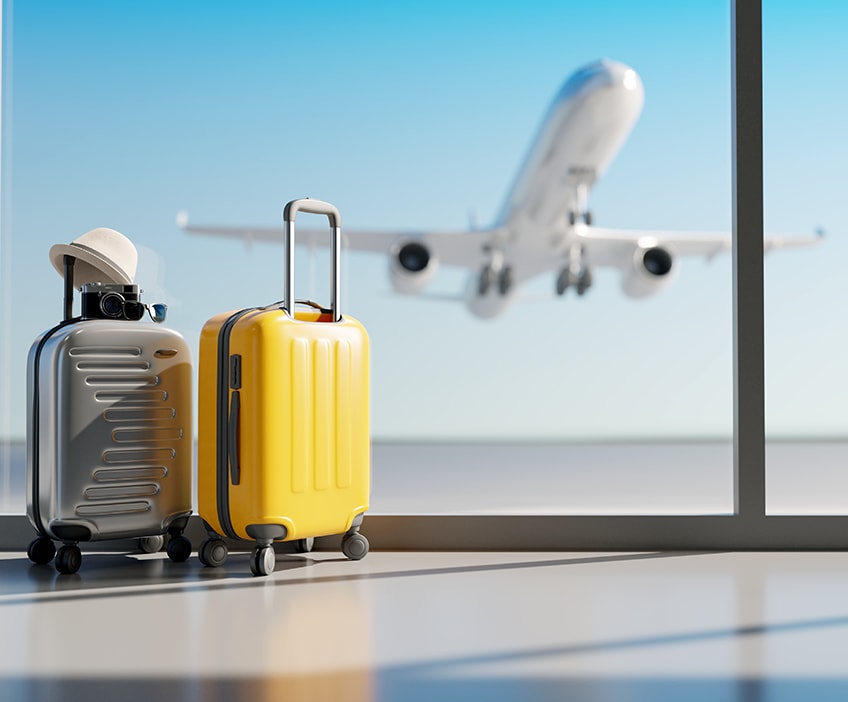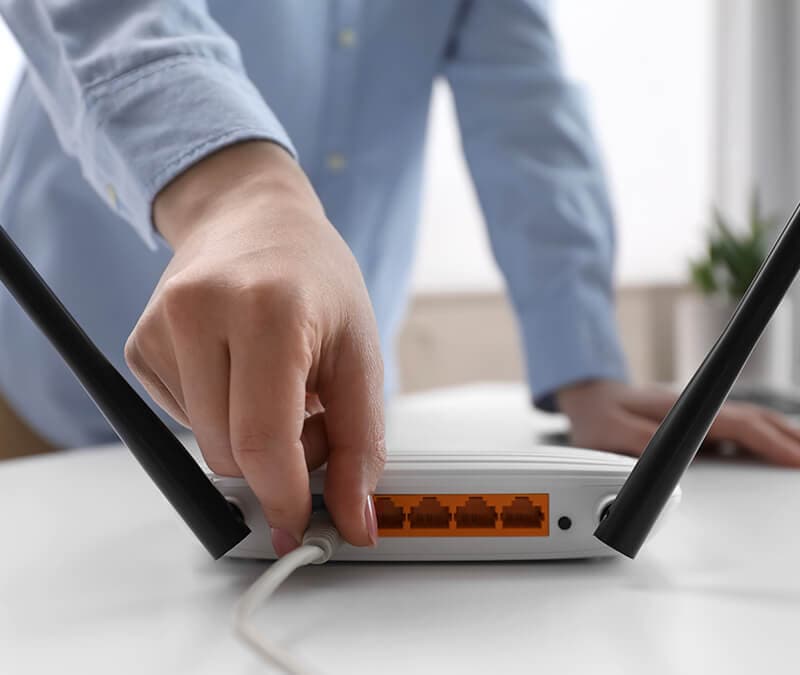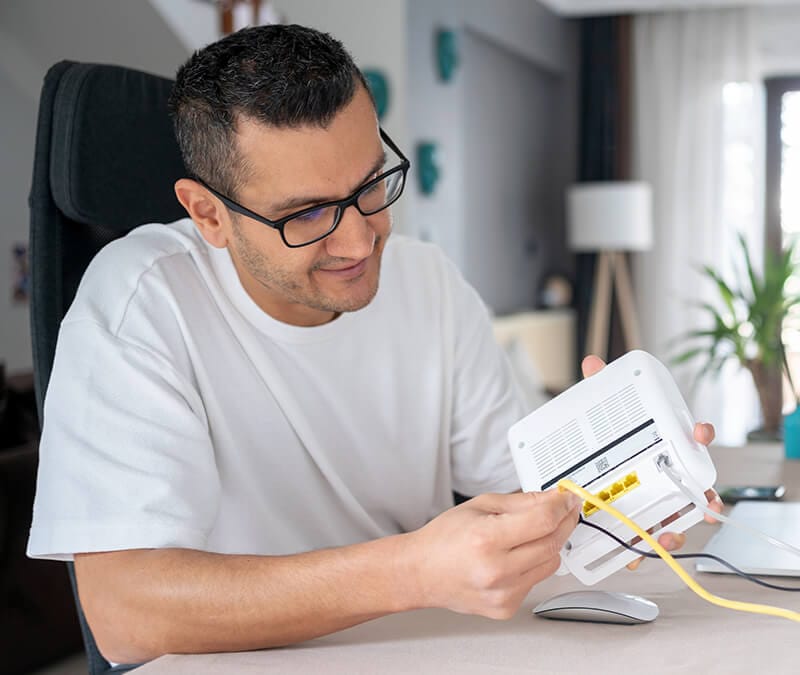Is airport wifi safe? Hunting for the most secure connection
Waiting at the gate can get pretty boring—but think twice before connecting to airport wifi without taking the proper precautions.

You’re finally taking your sweet vacation! You get to the airport all excited and now you just have to wait at the gate. But you have a couple of hours to kill before takeoff. You decide to connect to the airport wifi to scroll through social media. However, you notice that there are many wifi options. Are any of them secure?
As is often the case with public wifi networks, airport wifi isn’t as safe or convenient as we would like. Cyber criminals may use unsecured networks to steal your personal and banking information, install malware, or hack your private accounts.
Before connecting, let’s learn how to help be safer while using airport wifi.
How safe is airport wifi?
Airport wifi can be risky. A 2023 study found that 40% of respondents had their information compromised while using public wifi. In the same study, airport was listed as the fourth most common place people use public wifi.
Airports aren’t known to have the best wifi security, often lacking robust encryption. The lax security makes it easier for cybercriminals to intercept data. Common attacks include man-in-the-middle (MITM) and packet sniffing:
- MITM attacks: Cybercriminals intercept communication between you and the wifi network, as if they were a gossiper eavesdropping on your conversations.
- Packet sniffing: Cybercriminals capture data packets transmitted over the network, looking to get one with your personal information.
What can go wrong when you use airport wifi?
Using airport wifi can expose you to cyber threats. Even though it might seem convenient, the risks often outweigh the benefits. Let’s look at some common risks:
- Malware infections: Public wifi networks can serve as a hotspot for malware distribution. Cybercriminals may exploit vulnerabilities in your device to install malicious software without your knowledge.
- Evil twin attack: Cybercriminals can create a wifi hotspot impersonating a legitimate one to spy on your activity online. Then, they can steal personal information, such as social security numbers and bank details, leading to identity theft.
- Account takeovers: Accessing your email or social media accounts over public wifi can lead to account takeovers, where scammers gain control of your accounts, potentially locking you out and misusing your information.
How to stay safe when using public airport wifi
Whenever possible, use mobile data instead of public wifi If you must use airport wifi, follow these tips to protect your data:
Use the official airport wifi network
Always connect to the official airport wifi network. Look for signs or ask airport staff to verify the correct network name. However, this still won’t guarantee a completely secure network and extra precautions should be taken.
Get antimalware software
Install antimalware software, like Norton 360, on all your devices. This provides an extra layer of security against potential threats.
Be careful about clicking pop-ups
Not all pop-ups are legitimate. Be cautious about clicking on any pop-ups while connected to public wifi—they might be phishing attempts.
Don’t enter sensitive information
When connected to public wifi, avoid entering sensitive information, such as credit card details or passwords. Use a VPN to encrypt your data if you must access sensitive information.
Install updates
Regularly update your software and operating system to patch any security vulnerabilities.
Turn off Bluetooth
Disable your device’s Bluetooth to prevent unauthorized connections.
Only visit secure websites
Check that websites use HTTPS, indicating a secure connection. Look for a padlock icon in the address bar.
Turn off file and printer sharing
Disable file and printer sharing to reduce the risk of unauthorized access to your files.
Tips to recover after an attack on airport wifi
If you suspect your data has been compromised, it’s important to act quickly. These tips may help you manage the potential effects of a cyber attack:
- Run a malware scan.
- Change your passwords.
- Contact your bank to secure your accounts.
- Enable any fraud alerts available for your accounts.
- Contact credit reporting agencies.
- Contact the authorities, such as the FBI’s Internet Crime Complaint Center.
Don’t let airport wifi put a damper on your vacation
No one wants to worry about cyber threats while traveling. Yet, taking precautions can make a huge difference on how things play out if you’re targeted. Keep yourself informed, safe, and enjoy your travels!
FAQs About airport wifi security
Is it safe to visit HTTPS websites while connected to public airport wifi?
Yes, HTTPS websites are generally safer as they encrypt your data. However, this won’t shield you from all public wifi attacks.
Can you get hacked while charging your phone at the airport?
It’s possible if you connect to an unsecured charging station. Use a USB data blocker for added security.
Is airport wifi safe with a VPN?
Using a VPN significantly enhances your security by encrypting your internet connection.
Is it safe to pay bills or check my bank account while connected to airport wifi?
It's best to avoid such activities unless you’re using a VPN to protect your data.
Editorial note: Our articles provide educational information for you. Our offerings may not cover or protect against every type of crime, fraud, or threat we write about. Our goal is to increase awareness about Cyber Safety. Please review complete Terms during enrollment or setup. Remember that no one can prevent all identity theft or cybercrime, and that LifeLock does not monitor all transactions at all businesses. The Norton and LifeLock brands are part of Gen Digital Inc.




Want more?
Follow us for all the latest news, tips, and updates.